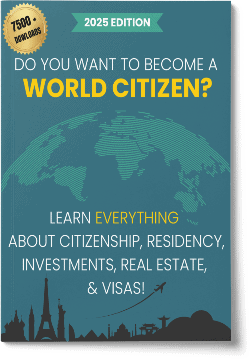Do I Qualify for a Canadian Study Permit?
Boost Your Freedom Without Compromise.
- Who offers the CHEAPEST program available.
- Who offers the BEST program available.
- What you need to qualify?

- The Canadian Study Permit is necessary for international students planning to attend a designated learning institution (DLI) in Canada for a course or program longer than six months.
- Requirements include an acceptance letter from a DLI, proof of sufficient funds to cover tuition fees and living expenses, and a clean criminal record.
- Holders may be eligible to work on or off campus up to 20 hours per week during academic sessions and full-time during scheduled breaks without a separate work permit.
- Family members can come to Canada, with spouses eligible for an open work permit and minor children able to study at Canadian primary or secondary schools.
- Transitioning after graduation is facilitated by programs like the Post-Graduation Work Permit Program (PGWPP) and Canadian Experience Class (CEC), allowing students to gain valuable Canadian work experience.
Venturing into Canada as an international student is an exciting journey filled with opportunities for growth, learning, and exploration, and the Canadian study permit is your gateway.
It gives you access to this adventure of world-class education and a life-changing experience in one of the most welcoming countries on the globe.
In This Article, You Will Discover:
Our expert guide will walk you through everything you need to know about obtaining and making the most of your Canadian study permit.
Our experts have all the facts ready, so all you have to do is scroll on…
*Disclaimer: All amounts quoted in this article were correct and accurate at the time of publication and may have shifted since.
- Who offers the CHEAPEST program available.
- Who offers the BEST program available.
- What you need to qualify?
 Free Consultation
Free Consultation Easy to Use
Easy to Use 100% Safe & Secure
100% Safe & Secure
Canadian Study Permit: An Overview
Embarking on the journey to study in Canada begins with securing a Canadian study permit, a document as essential to your academic adventure as maple syrup is to pancakes.
Let's dive into the syrupy details of duration, eligibility, and the not-so-sweet costs and rules that come with this permit.
Read on.
Purpose
Canada doesn’t have different types of student visas in the way some other countries might categorize them; they issue study permits to international students.1
The term "student visa" is commonly used interchangeably with "study permit" in everyday language, but officially, the correct term is a study permit.
Want to know more?
Securing a Canadian study permit is the first step in your journey to becoming as Canadian as saying "sorry" when someone else bumps into you.
It's your golden ticket to experiencing Canada's vast landscapes, diverse cultures, and world-renowned education system.
With this permit, you're not just a visitor but a temporary part of the Canadian mosaic, with the opportunity to learn, grow, and maybe even skate on a frozen pond.
Duration
The duration of a Canadian study permit is like a Canadian winter—longer than you might expect and varying by location.
Officially, it's pegged to the length of your study program plus an extra 90 days.
These extra days aren't for hibernation but for preparing to leave Canada or extend your stay.
That being said…
If your course is under 6 months, you're in the summer school camp, and no permit is required.
But for anything longer, you're looking at an entire season's commitment, with extensions possible if your studies decide to go into overtime.
Eligibility Criteria
To be eligible for a Canadian study permit, you must prove that you're the academic equivalent of a polite, queue-respecting Canadian, ready to embrace the cold of winter and the warmth of the people.
Jokes aside
You need an acceptance letter from a designated learning institution, prove that you can support yourself financially (without diving into the maple syrup reserves), and convince an immigration officer that you'll leave Canada when your permit expires.
There's no need to show proficiency in hockey, but English or French language skills are a must.
Rules & Regulations
Navigating the rules and regulations of a Canadian study permit is akin to understanding the rules of curling—complex at first but logical once you get the hang of it.
You must attend a designated learning institution, progress towards completing your program, and respect the conditions of your permit.
This means no moonlighting as a secret agent unless your permit expressly allows work.
Remember
Keep your permit valid and your passport fresher than a Canadian winter morning.
Costs & Fees
The costs and fees associated with obtaining this coveted permit are as predictable as a Tim Hortons on every corner.
You're looking at a permit application fee of CA$150, not including the biometrics fee, which is like the extra shot in your double-double—necessary for some.2
Then
There's proof of financial support, which is your ticket to proving you can afford the Canadian experience, including tuition, living expenses, and the occasional hockey game.
Preparing for Your Permit Interview
Not every aspirant for a Canadian student permit faces the interview hurdle, but when it’s part of your journey, preparation is your best ally.
You must arm yourself with all the necessary documentation—your acceptance letter, financial proofs, and other paperwork confirming your study plans and ties to your homeland.
Here’s what you need to know:
How to Schedule Your Permit Interview
Head over to the official portal of the Canadian embassy or consulate in your country to kickstart your application process online, which includes fee payment.
Only after these steps can you snag a slot for your interview.
Opt for a slot that strikes a balance between giving you ample prep time and keeping the wait from turning into a nail-biter.
Common Permit Interview Questions
Stepping into the permit interview without a clue what might come your way is like skating on thin ice—risky business.
Questions can include these:
- Why did you pick Canada for your studies?
- What are the specifics of your chosen program?
- How do you plan on managing your finances through your educational journey?
The objective isn’t to trip you up but to ensure your plans for studying in Canada are as solid as the country’s famed ice hockey defense.
Tips for a Successful Permit Interview
Nailing your permit interview is less about performing a perfect figure skating routine and more about showing up prepared, poised, and genuine.
Dress the part, rehearse your responses to avoid getting tongue-tied (while steering clear of sounding like a rehearsed robot), and channel your inner Canadian politeness and straightforwardness.
Here’s a top tip:
The interviewer is rooting for you to succeed, not to bench you.
Clarity, honesty, and enthusiasm for your educational adventure can turn this interview into a winning goal for your Canadian study dreams.
Rights & Benefits
Holding a Canadian study permit is like having a backstage pass to one of the world’s most welcoming and diverse concerts.
Here’s why:
Living in Canada
Life in Canada for international students is as vibrant and varied as the country's landscape.
From the bustling streets of Toronto to the serene beauty of British Columbia, Canada offers a blend of urban sophistication and natural splendor.
You’ll find yourself in experiences as enriching as they are educational, with opportunities to engage in multicultural festivals, explore the great outdoors, and indulge in cuisines from around the globe, all while experiencing the famed Canadian politeness and inclusivity.
Work Opportunities
The permit typically allows you to work up to 20 hours per week during academic sessions and full-time during scheduled breaks.
This opens doors to gaining valuable Canadian work experience related to your field of study, making your resume stand out.
It's an unparalleled chance to earn while you learn, providing a taste of the Canadian workforce's culture and ethics.
Bringing Family Members
Eligible students can bring their family members along, allowing spouses to apply for an open work permit and dependents to attend Canada’s public schools.
It’s like having your cake and eating it, ensuring your support system is right there with you.
Challenges & Pitfalls
Understanding the requirements, staying informed about changes in immigration policies, and preparing for the Canadian academic environment are crucial steps to avoid common pitfalls.
Here are the main ones you might face:
Delays
Permit delays in Canada can be as common as snow in the Canadian winter, often due to incomplete applications, processing backlogs, or the need for additional documentation.
Planning and applying as early as possible can help mitigate these delays, ensuring ample time to prepare for your Canadian adventure.
Denials
Some Canadian study permit applications face denials.
Common reasons in Canada include:
- Doubts about your financial stability
- Intentions to leave Canada after your studies
- The relevance of your chosen program
Understanding these potential roadblocks can help you strengthen your application, appeal, or reapply more effectively.
Maintaining Your Permit Status
Keeping your study permit in good standing is like maintaining a delicate balance; it requires attention to detail and adherence to regulations.
This means continuously meeting your study requirements, refraining from unauthorized work, and ensuring your passport and permit remain valid throughout your stay.
It’s the foundation for a successful and stress-free study experience in Canada.
Extending & Changing Your Permit
Extending or changing your Canadian study permit involves proving your continued eligibility and updating your immigration status accordingly, ensuring your Canadian academic journey remains on track.
Our team of professionals has the details ready for you below.
Permit Extension Conditions
Extensions require demonstrating that you’re still playing by the rules—enrolled in your program and making progress.
Keep an eye on the expiration dates and apply well in advance to avoid any gaps in your status that could put you on the bench.
Changing Your Educational Institution
Canada’s flexible education system allows for such changes, provided you notify Immigration, Refugees and Citizenship Canada (IRCC) about your move.
It’s a way to ensure your permit reflects your current academic path.
Transitioning From a Student Permit to Another Visa
Graduating from your program doesn’t necessarily mean it’s time to pack up your pucks and sticks.
Transitioning from a study permit to a work visa, such as the Post-Graduation Work Permit (PGWP), can extend your stay and enrich your Canadian experience.
It’s a bridge to gaining more work experience, potentially leading to permanent residency and allowing you to continue scoring goals in Canada.
Common Questions
What’s the Minimum Bank Balance Requirement to Get a Canadian Study Permit?
Is the Canadian Study Permit Easy to Get?
Can I Stay in Canada After My Study Permit Expires?
Can My Family Move to Canada if I Have a Canadian Study Permit?
What Are the New Rules for Canada’s Study Permit?
Do I Have to Work When I Have a Canadian Study Permit?
How Long Is the Canadian Study Permit’s Processing Time?
How Do I Apply For a Canadian Study Permit?
How Long Can a Student Stay in Canada Without Studying?
In Conclusion
Wrapping up our guide, it’s clear that the Canadian study permit is much more than a document; it’s your key to unlocking an enriching educational and personal journey in Canada.
Through this journey, you’ll encounter academic growth and a deep dive into the diverse and inclusive Canadian culture.
Armed with this guide, you’re ready to embark on your Canadian educational adventure confidently and clearly.
Read about other countries and their student visas.
Learn More: Student Visas
- Who offers the CHEAPEST program available.
- Who offers the BEST program available.
- What you need to qualify?
 Free Consultation
Free Consultation Easy to Use
Easy to Use 100% Safe & Secure
100% Safe & Secure







